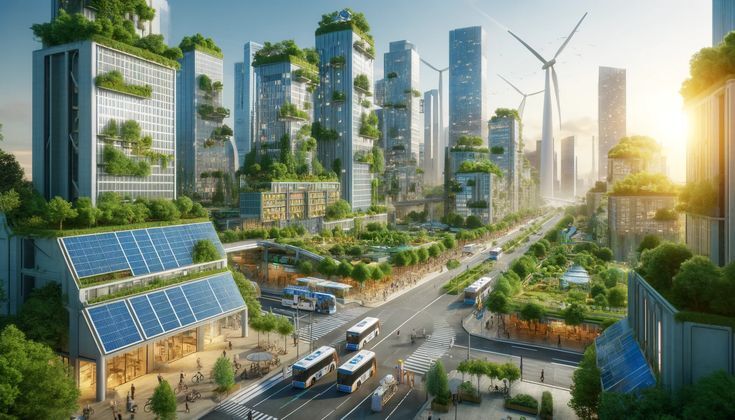The Future of Climate Risk in Real Estate: Navigating Uncertainty for Long-Term Resilience (Real Estate - Other Real Estate Ads)

INNetAds > Real Estate > Other Real Estate Ads
Item ID 2986201 in Category: Real Estate - Other Real Estate Ads
The Future of Climate Risk in Real Estate: Navigating Uncertainty for Long-Term Resilience | |
The real estate industry faces a critical challenge as climate risks grow in frequency and intensity. As global warming accelerates, environmental changes—rising sea levels, increased storm frequency, and extreme temperature shifts—are reshaping real estate investment strategies, asset valuations, and urban development. The future of real estate now hinges on how well stakeholders integrate climate risk into their decision-making processes. The growing impact of climate risk on real estate in Singapore Historically, real estate decisions in Singapore have been driven by economic fundamentals, government planning, and market trends. However, as physical risks associated with climate change become more evident, investors, developers, and asset managers in Singapore are rethinking their approaches. These risks include direct threats such as property damage from flooding and rising sea levels, as well as indirect factors like evolving regulations, insurance costs, and shifting demand. Singapore’s low-lying areas and coastal properties, once considered premium real estate, face growing concerns as the city-state grapples with the implications of sea-level rise. Government initiatives like the Coastal and Flood Protection Fund, which allocated S$100 billion for long-term resilience measures, underscore the serious threat posed by climate change. As a result, real estate stakeholders must assess how climate risk could affect both property values and future developments. Regulatory pressures and ESG considerations Singapore has been proactive in addressing climate-related risks through policy and regulation. The Building and Construction Authority (BCA) has introduced green building standards, while the government’s push for Environmental, Social, and Governance (ESG) integration in the financial sector is influencing real estate investments. These regulations, coupled with investor demand for sustainable assets, are driving real estate players to adopt ESG criteria more rigorously. With initiatives like the Green Mark certification and the Singapore Green Plan 2030, property owners and developers are incentivized to design and manage buildings with climate resilience in mind. Meeting energy efficiency, water conservation, and climate adaptation standards not only enhances resilience but also positions properties more favorably in the market. Climate risk assessment and technology’s role Accurate climate risk assessment is crucial for informed decision-making in Singapore’s real estate market. Traditional valuation models often overlook long-term environmental impacts. However, advances in data analytics, geographic information systems (GIS), and climate modeling tools are helping stakeholders predict how climate factors will influence property values and resilience. In Singapore, digital platforms and smart city initiatives are being leveraged to integrate climate intelligence into urban planning and development strategies. Moreover, the use of technologies like AI-driven data platforms is allowing developers and investors to analyze environmental risks at a granular level. These tools offer insights into flood-prone areas, heat island effects, and future climate scenarios, helping industry players mitigate risks and identify resilient investment opportunities.  | |
| Target State: All States Target City : All Cities Last Update : 16 September 2024 12:35 PM Number of Views: 36 | Item Owner : Annu Talreja Contact Email: (None) Contact Phone: (None) |
| Friendly reminder: Click here to read some tips. | |
INNetAds > Real Estate > Other Real Estate Ads
© 2025 INNetAds.com
USNetAds.com | GetJob.us | CANetAds.com | UKAdsList.com | AUNetAds.com | CNNetAds.com | Hot-Web-Ads.com | USAOnlineClassifieds.com
2025-02-23 (0.851 sec)